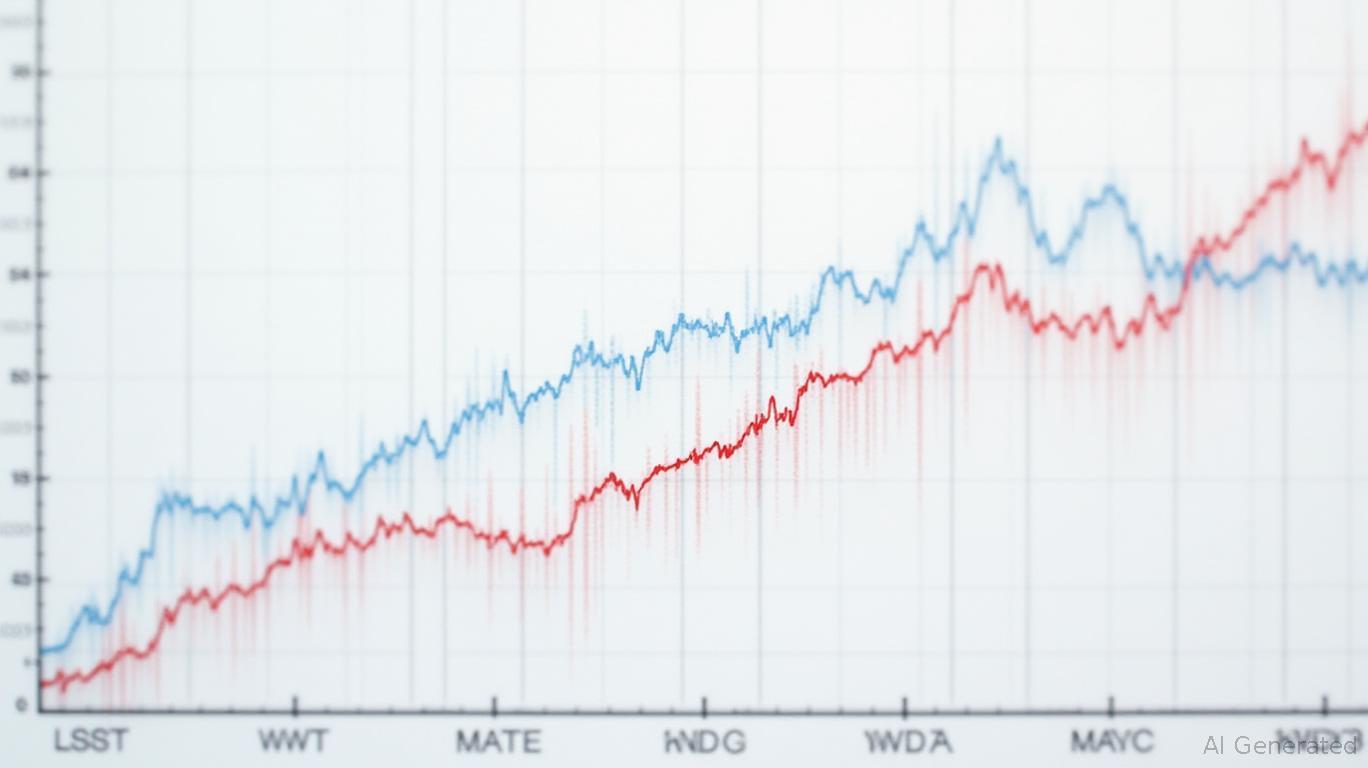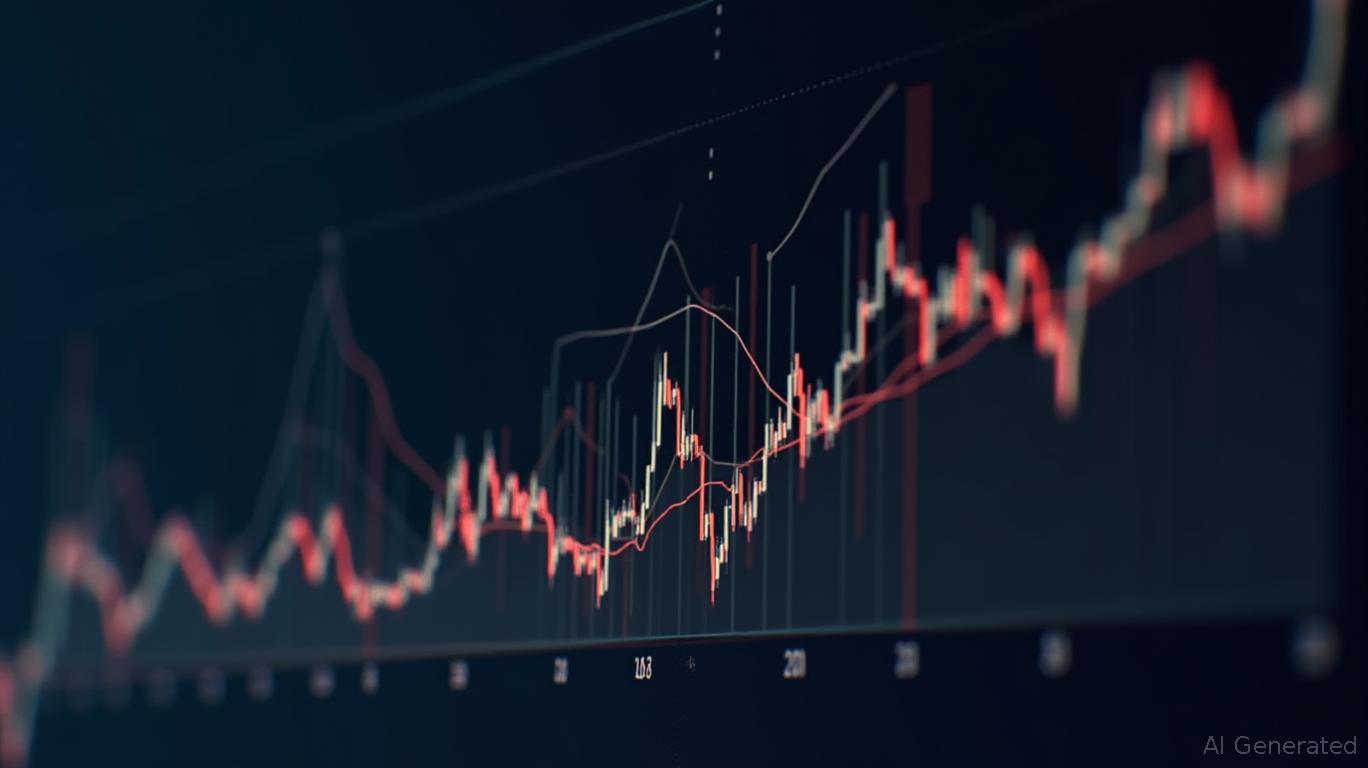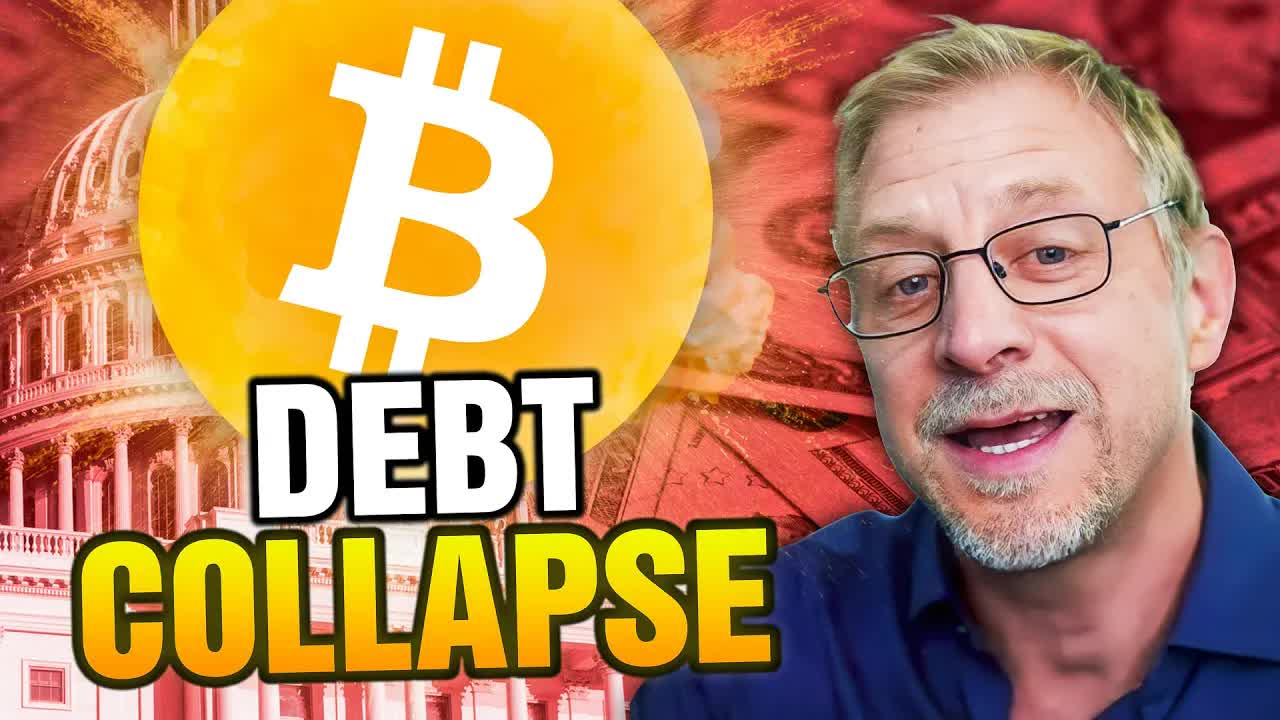Cramer Defends Cryptocurrency: A Hedge Against National Debt
Tuesday, Nov 26, 2024 7:18 pm ET
Jim Cramer, the charismatic host of CNBC's Mad Money, finds himself in a familiar position: defending his stance on a controversial topic in the investing world. This time, his target is cryptocurrency, which he endorses as a potential hedge against the growing national debt. "National debt worries are never going to go away," Cramer argues, suggesting that crypto's fixed supply and potential to appreciate in value could counteract the devaluation of the dollar due to excessive federal spending and a widening U.S. national debt.
Cramer's endorsement of crypto as a hedge against national debt may seem counterintuitive to his preference for stable, predictable investments. However, his argument aligns with his core values in certain aspects. He believes that crypto's fixed supply could protect investors from government overspending and a widening U.S. national debt. This aligns with Cramer's focus on protecting capital and mitigating risks. Furthermore, Cramer's emphasis on long-term growth and his skepticism towards immediate government solutions for the debt crisis are consistent with his investment philosophy.

Cramer favors Bitcoin and Ethereum, citing their fixed supplies and potential to protect investors from dollar devaluation. However, he acknowledges the volatility and lack of proven track record for cryptocurrencies. "While there's no proof crypto can protect you from anything — at least not yet," Cramer admits, "it's a plausible story... Let's just say sometimes that's all you need in this business."
Cramer's stance on crypto as a debt hedge compares to other analysts' views on the role of crypto in managing national debt. A 2024 research paper ("A Digital Solution to Sovereign Debt") explores a government-backed cryptocurrency for debt repayment, acknowledging potential volatility and regulatory challenges. Cramer echoes this sentiment, suggesting crypto's fixed supply may protect investors from a devalued dollar. However, a 2023 Nature study found EPU negatively impacts the crypto market in the short term, though Bitcoin and Ethereum can serve as hedging tools. In contrast, Cramer views crypto's hedging potential as plausible, despite lacking definitive proof.
Cramer acknowledges several regulatory concerns and risks regarding cryptocurrency as a tool for hedging against U.S. national debt. Firstly, cryptocurrencies are relatively new and lack a proven track record, making them unreliable hedges against market volatility. Secondly, the U.S. government may lack the political will to address the national debt issue, further complicating the usefulness of cryptocurrencies as a hedge. Lastly, Cramer acknowledges that cryptocurrencies are highly volatile, with prices fluctuating significantly over short periods. This volatility poses risks to investors seeking a stable hedge against market uncertainty.
Despite these concerns, Cramer believes that cryptocurrencies, such as Bitcoin and Ethereum, deserve a place in investors' portfolios as potential hedges against excessive federal spending and a widening U.S. national debt. As Cramer concludes, "I think bitcoin, ethereum and maybe even some other cryptocurrencies deserve a spot in your portfolio, too."
Cramer's endorsement of crypto as a hedge against national debt may seem counterintuitive to his preference for stable, predictable investments. However, his argument aligns with his core values in certain aspects. He believes that crypto's fixed supply could protect investors from government overspending and a widening U.S. national debt. This aligns with Cramer's focus on protecting capital and mitigating risks. Furthermore, Cramer's emphasis on long-term growth and his skepticism towards immediate government solutions for the debt crisis are consistent with his investment philosophy.

Cramer favors Bitcoin and Ethereum, citing their fixed supplies and potential to protect investors from dollar devaluation. However, he acknowledges the volatility and lack of proven track record for cryptocurrencies. "While there's no proof crypto can protect you from anything — at least not yet," Cramer admits, "it's a plausible story... Let's just say sometimes that's all you need in this business."
Cramer's stance on crypto as a debt hedge compares to other analysts' views on the role of crypto in managing national debt. A 2024 research paper ("A Digital Solution to Sovereign Debt") explores a government-backed cryptocurrency for debt repayment, acknowledging potential volatility and regulatory challenges. Cramer echoes this sentiment, suggesting crypto's fixed supply may protect investors from a devalued dollar. However, a 2023 Nature study found EPU negatively impacts the crypto market in the short term, though Bitcoin and Ethereum can serve as hedging tools. In contrast, Cramer views crypto's hedging potential as plausible, despite lacking definitive proof.
Cramer acknowledges several regulatory concerns and risks regarding cryptocurrency as a tool for hedging against U.S. national debt. Firstly, cryptocurrencies are relatively new and lack a proven track record, making them unreliable hedges against market volatility. Secondly, the U.S. government may lack the political will to address the national debt issue, further complicating the usefulness of cryptocurrencies as a hedge. Lastly, Cramer acknowledges that cryptocurrencies are highly volatile, with prices fluctuating significantly over short periods. This volatility poses risks to investors seeking a stable hedge against market uncertainty.
Despite these concerns, Cramer believes that cryptocurrencies, such as Bitcoin and Ethereum, deserve a place in investors' portfolios as potential hedges against excessive federal spending and a widening U.S. national debt. As Cramer concludes, "I think bitcoin, ethereum and maybe even some other cryptocurrencies deserve a spot in your portfolio, too."










I Just decided today that I want to work hard for a future so that in the next 10 years, I will have something pretty good for my future family. I started early this year with the guidance of KARLA ELLISON on Facebook and I've been seeing steady gains since then. Thank you Mrs Karla for your invaluable guidance on my investment journey.